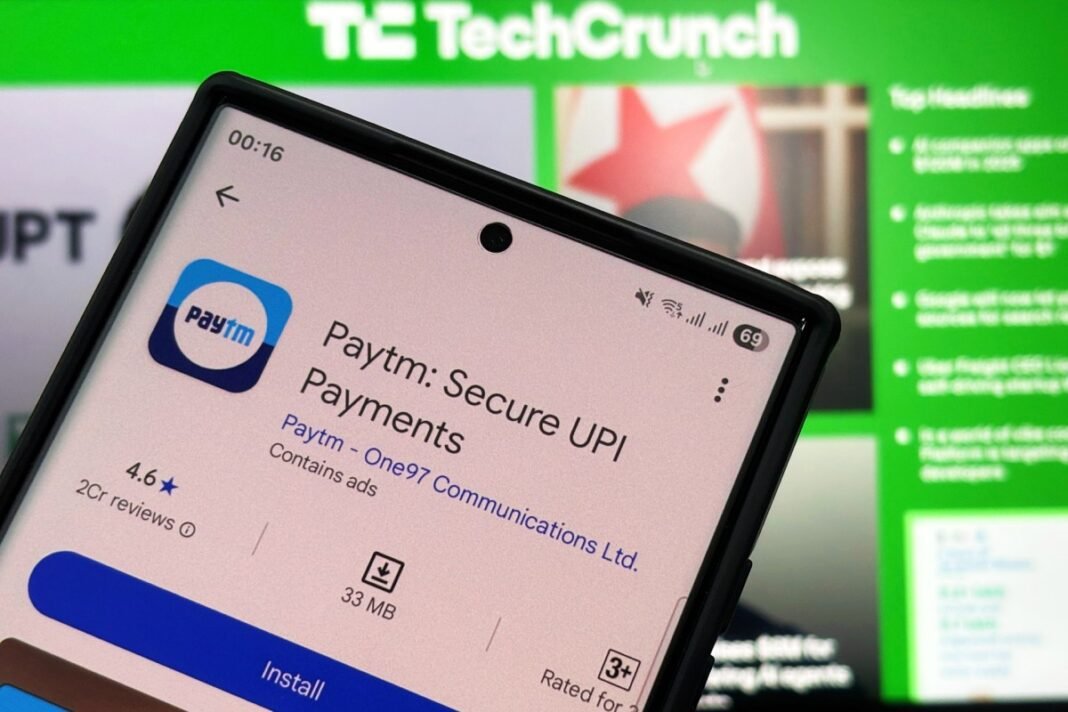Paytm Receives Vital RBI Approval to Restart Online Payment Aggregation
Overcoming Regulatory Barriers to Secure Approval
After navigating a complex regulatory landscape for over two years, paytm has finally secured the Reserve Bank of India’s (RBI) “in-principle” authorization to operate as a payment aggregator for online merchants. This approval follows an earlier denial in late 2022, which was primarily due to concerns over foreign investment compliance linked to neighboring countries.
Strategic Responses During License suspension
The lack of this license had restricted Paytm from onboarding new online merchants, tho the company initially reported limited impact on its revenue streams. To counter these limitations, Paytm forged partnerships with leading banks such as Axis Bank, HDFC Bank, State Bank of India, and Yes Bank. These collaborations enabled continued payment processing services despite RBI’s prior restrictions on Paytm Payments Bank from accepting fresh deposits and credit transactions.
Regaining Autonomy in Payment Services
The newly granted license allows Paytm to independently provide multiple payment methods-including credit/debit cards, net banking, and Unified Payments Interface (UPI)-to digital businesses without heavy reliance on third-party banking institutions. Industry analysts anticipate that this will help Paytm streamline its operations across both physical devices like sound boxes used at retail outlets and its digital payment gateways.
Evolving Ownership Reflects Broader Market Dynamics
This regulatory milestone coincides with meaningful shifts in ownership: China’s Ant Group recently sold off its remaining 5.8% stake in One97 Communications-the parent company of Paytm-through block deals valued at $454 million.earlier in 2023,ant group had already transferred a 10.3% share worth $628 million back to founder Vijay Shekhar Sharma via a no-cash transaction.
Compliance Obligations Under RBI Guidelines
The RBI requires that within six months Paytm must complete thorough system audits including cybersecurity evaluations; failure to meet these conditions could lead to revocation of the approval.It is important to emphasize that this license strictly authorizes online payment aggregation activities and does not extend into other financial sectors.
Competitive Landscape and Market Share Insights
Ranked as India’s third-largest UPI payments platform after PhonePe and Google pay, Paytm accounted for roughly 6.9% of all UPI transactions during June 2025-equivalent to about 1.27 billion transactions valued at ₹1.34 trillion (approximately $15 billion). While PhonePe and google dominate more than 82% market share by volume combined, Paytm distinguishes itself through an expansive suite that integrates offline merchant hardware solutions alongside growing lending services.
A Financial Revival Inspires Investor Optimism
The fiscal first quarter results for 2026 indicate robust growth: net profits surged to ₹1.23 billion (~$14 million), reversing losses recorded during the same period last year when analysts predicted losses near ₹1.27 billion (~$14.5 million). revenue increased nearly 28% year-over-year reaching $224 million while contribution margins improved significantly from 50% up to around 60%. Correspondingly, shares have risen over 13% so far in calendar year 2025 amid heightened investor confidence following regulatory progress.
Paving the Way Forward: Enhancing Digital Payment Infrastructure Nationwide
This positive momentum positions Paytm strongly within India’s fast-growing digital payments ecosystem where total UPI transaction volumes surpassed 20 billion monthly transactions as of May-June 2025. By regaining full operational authority as an authorized payment aggregator combined with diversified offerings spanning both digital wallets and physical point-of-sale systems-including penetration into rural markets-Paytm aims not only at consolidating market presence but also advancing financial inclusion across varied consumer segments nationwide.





